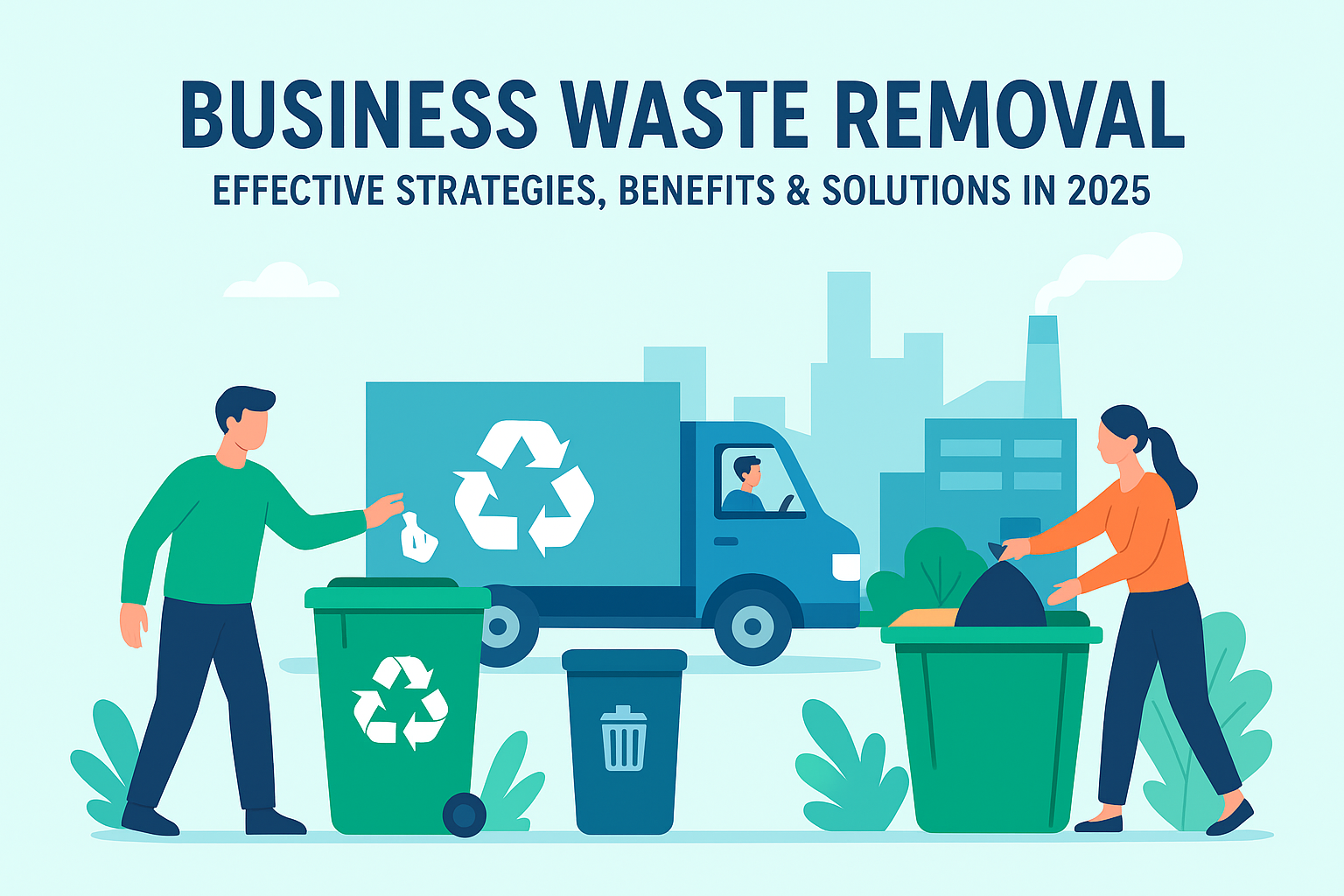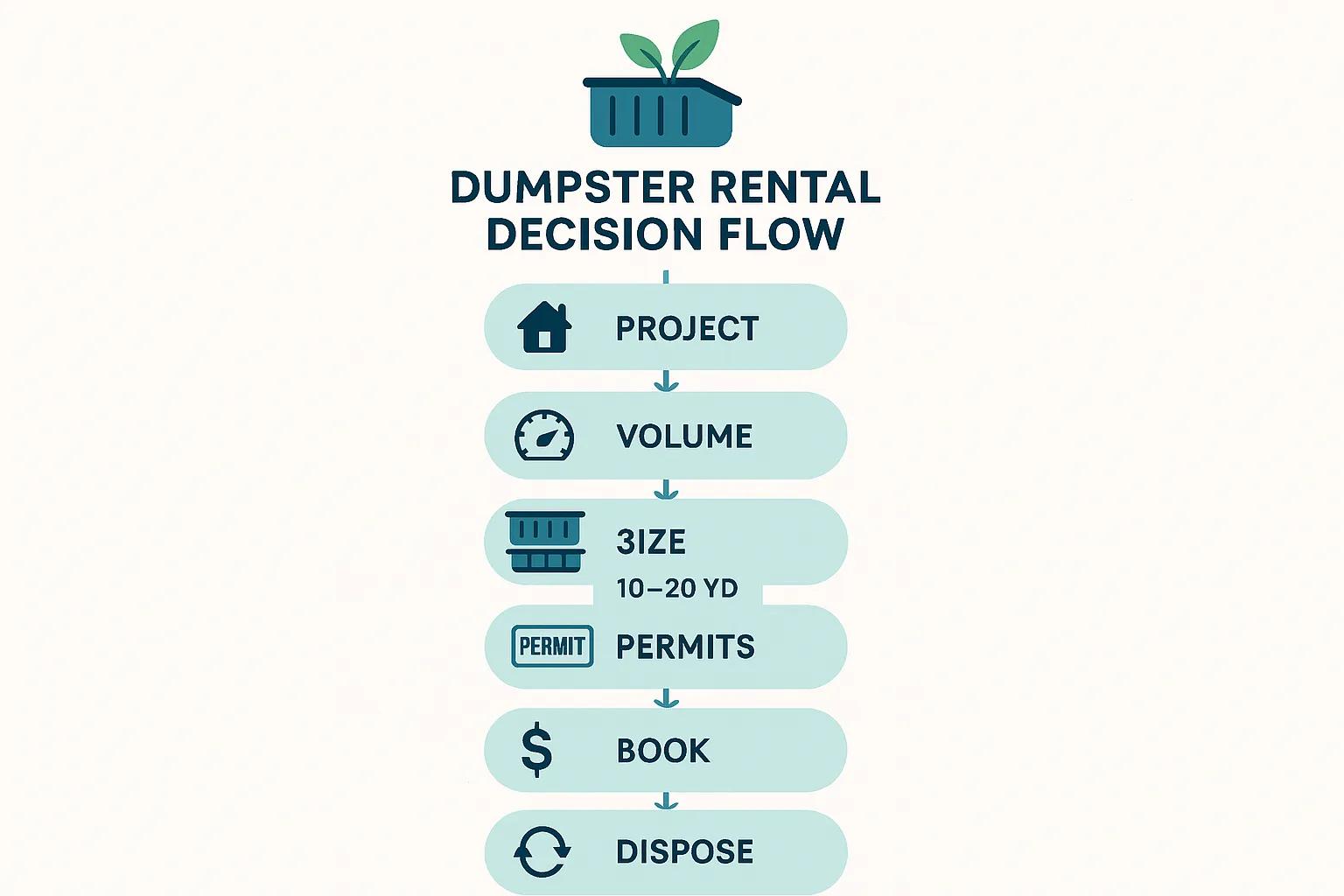
Introduction to Business Waste Removal
Every business, whether small or large, generates waste on a daily basis. From paper and packaging to hazardous chemicals and electronic devices, proper business waste removal has become more than just a necessity—it’s a responsibility. With stricter environmental regulations, growing sustainability demands, and increasing operational costs, companies must rethink how they manage waste.
In this article, we’ll explore the different types of business waste, why responsible removal matters, and how businesses can adopt smart solutions to save money, protect the environment, and enhance their reputation.
What is Business Waste Removal?
Business waste removal refers to the process of collecting, handling, recycling, and safely disposing of waste produced by commercial enterprises. Unlike household waste, business waste often involves large volumes and specific regulations that require professional management.
For instance, a law firm might only need paper recycling, while a restaurant has to manage food waste and packaging, and a construction company deals with hazardous debris.
Why Businesses Need Proper Waste Management
There are three main reasons why every business must take waste removal seriously:
-
Legal Compliance – Governments impose strict waste disposal laws, and failure to comply can lead to hefty fines.
-
Environmental Responsibility – Businesses are expected to contribute to sustainability by reducing landfill waste and promoting recycling.
-
Operational Efficiency – Effective waste management saves time, lowers costs, and creates a safer workplace.
Types of Business Waste
General Office Waste
This includes paper, cardboard, printer cartridges, and packaging materials. Offices generate significant amounts of recyclable waste that can be diverted from landfills.
Industrial and Manufacturing Waste
Factories and industrial plants produce scrap metal, chemical by-products, plastics, and construction debris, often requiring specialized handling.
Food and Hospitality Waste
Restaurants, hotels, and catering services generate leftover food, packaging, and kitchen oils that must be disposed of responsibly.
Hazardous and Electronic Waste
Chemicals, batteries, and e-waste like old computers and mobile phones require careful disposal to prevent environmental damage.
The Importance of Responsible Waste Removal
Legal and Environmental Compliance
Companies must follow strict rules on waste handling, segregation, and recycling. Non-compliance not only risks penalties but also damages credibility.
Protecting Brand Reputation
Consumers prefer eco-conscious businesses. A strong waste removal plan shows commitment to sustainability, which can attract more customers.
Reducing Operational Costs
Efficient recycling and waste-to-energy programs can reduce disposal fees and even generate revenue from recyclable materials.
Modern Business Waste Removal Solutions
Recycling and Reuse Programs
Recycling remains the cornerstone of effective business waste management. Offices recycle paper, cardboard, and plastics, while manufacturing companies often reuse scrap materials in production. Encouraging employees to reduce, reuse, and recycle makes a significant difference.
Waste-to-Energy Initiatives
Innovative technologies now convert waste into energy. For example, non-recyclable plastics can be transformed into fuel, while organic waste can generate biogas. This reduces landfill dependency while creating alternative energy sources.
Smart Bins and Technology Integration
The rise of smart bins has transformed waste disposal. These bins monitor waste levels, segregate materials automatically, and notify collection services when full. Pairing technology with sustainability ensures higher efficiency.
Steps to Implement a Waste Management Plan
Conducting a Waste Audit
The first step for any business is understanding what kind of waste it produces and in what quantities. A waste audit helps identify opportunities for recycling, cost reduction, and efficiency.
Partnering with a Waste Removal Company
A reliable business waste removal company offers expertise, equipment, and compliance support. Businesses should look for providers with sustainable practices and proper certifications.
Employee Training and Engagement
Employees play a crucial role. By educating staff on proper disposal methods, businesses can significantly reduce contamination in recycling bins and improve efficiency.
Benefits of Professional Business Waste Removal Services
Efficiency and Convenience
Outsourcing waste management frees businesses from logistical headaches, ensuring timely collection and safe disposal.
Compliance with Waste Regulations
Professional services stay updated with local, national, and international waste disposal laws, ensuring businesses remain compliant.
Customized Waste Solutions
Every business is different. A good provider tailors solutions—whether it’s daily food waste pickup for restaurants or weekly recycling for office buildings.
Cost of Business Waste Removal
Factors Affecting Costs
The cost depends on the type of waste, volume, frequency of collection, and location. Hazardous waste disposal is typically more expensive due to strict regulations.
Budget-Friendly Waste Management Tips
-
Reduce waste generation through digital documentation.
-
Reuse materials where possible.
-
Negotiate long-term contracts with waste removal providers.
-
Sell recyclable materials like scrap metal or cardboard.
Choosing the Right Business Waste Removal Company
Key Qualities to Look For
-
Proper licenses and certifications.
-
Commitment to recycling and sustainability.
-
Transparent pricing with no hidden costs.
-
Flexibility to handle different types of waste.
Questions to Ask a Provider
-
How do you handle hazardous or electronic waste?
-
Do you provide recycling reports?
-
What are your sustainability practices?
-
Can you customize waste pickup schedules?
Future Trends in Business Waste Removal
AI and Automation in Waste Management
Artificial intelligence is helping companies optimize collection routes, monitor recycling contamination, and automate sorting processes.
Zero-Waste Business Models
More businesses are aiming for zero waste by redesigning products, reducing packaging, and embracing circular economy principles.
Government Regulations and Sustainability Goals
Governments worldwide are enforcing stricter waste reduction targets. Businesses that adapt early will avoid penalties and gain competitive advantages.
Frequently Asked Questions (FAQs)
1. What counts as business waste?
Business waste includes anything produced from commercial activities, such as paper, packaging, food scraps, chemicals, and electronic equipment.
2. How often should waste be collected?
It depends on the type of business. Restaurants may require daily collection, while offices can schedule weekly pickups.
3. Is business waste removal expensive?
Costs vary based on waste type and frequency, but recycling and reuse programs often lower long-term expenses.
4. Can businesses recycle electronic waste?
Yes. Certified e-waste recycling companies ensure safe disposal and recovery of valuable materials.
5. What happens if a business doesn’t manage waste properly?
Non-compliance can lead to fines, environmental harm, and reputational damage.
6. How can small businesses reduce waste costs?
They can share recycling services with neighboring companies, go paperless, and encourage staff to separate waste properly.
Conclusion: Building a Sustainable Future with Business Waste Removal
In 2025, business waste removal is not just a regulatory obligation—it’s a vital part of sustainability, efficiency, and corporate responsibility. From recycling initiatives and waste-to-energy solutions to AI-powered smart bins, businesses have more tools than ever to reduce their environmental impact.
Companies that embrace responsible waste management not only save money but also strengthen their reputation and contribute to a greener future. The choice is clear: invest in sustainable waste solutions today to build a thriving, eco-conscious business tomorrow.



